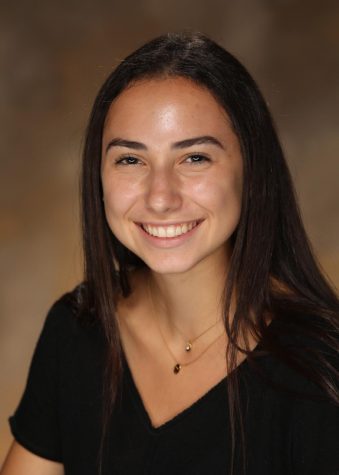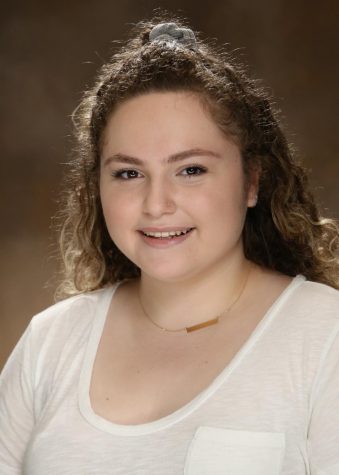Checks and balances: Are students prepared for the financial responsibility that comes with adulthood?
Many private school students are given ample academic opportunities and are taught to prioritize their school work over earning their own money through after school jobs. Their parents may give them hefty allowances or frequently resupply debit cards. Some worry that this leaves students unprepared for life after high school and college, when students will need to pay their own bills and support themselves.
Financial Culture at JDS
The Lion’s Tale conducted several surveys to find out how CESJDS students’ financial means compare with students around the country. The results show that JDS students receive somewhat higher allowances but have much greater access to credit and debit cards. Somewhat fewer JDS students have jobs than teens nationally.
The average allowance for teenagers across the country is 30 dollars a week, according to the New York Times; the average allowance for JDS students is slightly higher at 33 dollars from a survey of 48 JDS high school students. Additionally, in one of the Lion’s Tale surveys of 30 CESJDS high school students, they found that 29 percent have jobs, 6 percent less than the national average.
Senior Davida Goldman works at Cabin John Ice Rink as a cashier and customer service representative to save up for college tuition. Goldman does not receive an allowance from her parents and was “shocked” to hear about the national weekly average allowance.
“When I go shopping, I’m the most frugal person in the world. I buy clothes very rarely, which I think is not very normal for JDS kids. They consider money to be something that just comes from somewhere, and you can use it however you want, and they don’t pay as much attention to the fact that it has limits,” Goldman said.
How a student obtains their money affects how fiscally responsible each student is with their spending. According to a 2019 study by asset management company T. Rowe Price, about 17 percent of students across the country have a credit or debit card, compared to 75 percent of 66 JDS students surveyed. Some students may reload their own account, but given that only 29 percent have jobs, it is more likely that their parents are paying their bills.
Senior Avigyle Heyman has observed students attitudes towards money at the Upper School and believes that allowances and debit cards greatly impact students’ points of view on spending and saving.
“Obviously I think this school is a bit more privileged,” Heyman said. “This population has more debit and credit cards, and that might have to do with our peers and what they have.”
Senior Sarah Edery works for the money she has on her debit card by taking on multiple jobs rather than receiving a steady allowance from her mother. She had two jobs over the summer, working at a Kombucha company and as a swim instructor, and continues to work during the school year as a tutor. Edery put the money she earned towards saving up for the Poland portion of the Irene and Daniel Simpkins Senior Capstone Israel Trip.
“Some people don’t know what it means to work hard and think about money in a normal way, but they have the luxury of doing that,” Edery said.
Edery’s mother, high school guidance counselor Rachel Soifer, said that her kids help out around the house by doing chores, but she will only give them spending money if what they want to buy is necessary or important.
“I’ve always tried to help my kids think about priorities, and the difference between what they need and what they want,” Soifer said.
Not every student at JDS is restricted to a certain budget each week or month; many students have the luxury of spending their parents’ money for things they want that may not be considered a necessity. About 25 percent of JDS students say they only occasionally pay for their own food, while another fourth of respondents say that they never pay for food. While eating out may not be a necessity, many kids use their parents’ money when they go out to lunch with friends.
Sophomore Elliot Sher’s parents pay for his meals whenever he is out, which he views positively.
“I think it’s good that my parents pay for my food because they don’t want me to have to worry about money as a kid,” Sher said.
CESJDS’ Financial Education Efforts
Before students head to college and face independent financial decision making, JDS will have offered several opportunities for students to learn how to manage their money. Many JDS students believe that learning financial literacy in school is important.
“Every student in America should know how [to manage their money],” Goldman said, asserting that a class on learning how to be fiscally responsible should be necessary.
History teacher Eytan Apter helped to design a class to teach students to be fiscally responsible at a young age. The class launched in the 2016-2017 school year and was part of a program known as Humanities Experience for the middle school. The class will resume this spring for current eighth-graders.
The financial literacy class meets once a week for eight consecutive weeks. Lessons include learning how credit and debit cards work, how to manage credit and how to create a budget. Apter estimated that the entire program is equivalent to a quarter length class.
While Apter understands that JDS middle school students will not be opening a credit card account anytime soon, he said that he hopes his class will help students think more practically about spending money and provide them with lessons they can reflect on when they grow up.
“We take a theoretical approach to start thinking of these ideas now so that when they become of age they can be financially literate,” Apter said.
While the course did not have any tests or quizzes, students were given projects that allowed them to apply their information. However, junior Moshe Zaremba, who took the class, expressed concern about retaining the information they learned in middle school once they reached adulthood.
“You are then going to go through four years of high school and by the time you’re done, you are not going to remember any of the information you learned in that Friday class that met once a week in eighth grade,” Zaremba said.
Zaremba said that the class would be more beneficial if it were taken by juniors because they are at an age where they begin to think about their future with more clarity.
JDS offers another opportunity to learn about managing money once students are older. During the weeks between the end of the first semester and graduation, seniors can take a financial literacy class as one of their senior workshops. Students are given a variety of workshop options to attend, and only have to choose a select few to participate in. Topics range from financial literacy to sexual assault awareness. Last year, this workshop was taught by former history teacher Mark Dworin. Dworin has been invited to return this year to teach the course to the Class of 2020.
When Dworin still worked at JDS, he taught a high school economics elective, but according to Dean of Student Roslyn Landy, the class was not offered every year due to a lack of interest and trouble fitting it into students’ schedules.
“There’s only so much you can offer, and some things have to wait for college,” Landy said. “Especially when you have a dual curriculum.”
While these initiatives are well-intended, college graduate and JDS alumna Isabella Zissman (‘15) believes that the intricacies of financial literacy cannot be ingrained within a few classes.
Zissman, who lives on her own in Philadelphia and pays her own rent, said that she wishes that she had learned more about “the ideal of working with a budget, learning to manage money in a smart way and not so much just spending money here and there in high school.”
Director of College Guidance Sue Rexford agrees that teaching and learning financial literacy in high school is imperative. She hopes that students learn about credit, as they will have the opportunity to build a credit score in college.
“No student should ever graduate high school without a certain level of financial literacy,” Rexford said. “That’s something that comes with giving you enough independence to have to start making your own decisions, without giving you so much independence that you go overboard with it. It’s a learning process.”
Financial Independence After Graduation
After graduation, students face a new environment where most have to learn to be financially independent. While the school has taken some action to prepare students, JDS families come from various financial backgrounds, making it more difficult to advise a wide variety of students.
“I think a lot of people are still going to be using their parents’ money in college and they won’t be getting jobs,” Edery said. “They do need to understand that one day you’ll have to work to pay off all this student debt.”
Zissman noted that many students, upon entering college, had to begin thinking about money in a way that they never did in high school.
“In college, [talking about finances] was a conversation that I found myself in with people who did have to think about it on a more necessary basis than I did, but I think that before I went to college it wasn’t as much of a conversation,” Zissman said.
When a student has little-to-no-experience supporting themselves financially in high school, it is unrealistic to expect them to feel fully confident and make well-educated decisions after college. Junior Hailey Block understands this dilemma but hopes to overcome it as she gets older.
“I tend to waste my [spending] money on stupid things,” Block said. “But I think if I was on my own and taking things seriously, I would be able to figure it out.”
One issue that occurs when graduates do not manage their budgets effectively is a heavy college debt that accumulates with interest.
“One thing that I do have a fair amount of exposure to is how many grown-ups have college debt,” Soifer said.
According to Rexford, about 40 percent of the class of 2020 applied Early Decision to college, meaning that an acceptance is binding and that a family has to be comfortable with the cost of attendance if accepted. However, Rexford recognizes that at a college, it’s uncommon to have 40 percent of students attend without receiving significant financial aid.
“Many families that you would not think [need it] still require financial assistance to pay those hefty tuition tags,” Rexford said.
While the Early Decision statistic may cause some students to feel pressured to apply Early Decision or be left out if they do not, Rexford said that students should be honest during this process so they don’t end up in debt later.
“Students at this age are not aware of what it means to have to pay 70 thousand plus dollars to go to college for one year, and what that could mean for them if part of that payment of college involves a huge amount of loan on their part,” Rexford said.
In her decades of working as a college counselor, Rexford has advised hundreds of students and has learned that while where one goes to college is important, a student should select a school that helps them grow as a person. She has advised students who cannot afford to apply Early Decision, but end up extremely successful regardless.
“Students could end up starting their life after college already further in debt,” Rexford said. “And my guideline is that I don’t want them to be further in debt than the price of a new car.”
While Zissman was fortunate enough to have her parents pay for her tuition at Muhlenberg College, she recalled that many of her peers were not in the same situation. The conversation of budgets and managing money was not very prevalent amongst her friend group in high school.
“It was not as much of a conversation as it should have been,” Zissman said, “It was an assumption that our parents would pay for the things that we did.”
Landy believes in teaching financial literacy to prepare students for fiscal independence, but says that the school can only accomplish so much, because at the end of the day, it is the parents’ responsibility.
“If you look around, you know that some kids can spend whatever they want, and some parents are reasonable and good to their children, but they say, ‘enough, Dayeinu,’ you’ve spent enough this week,” Landy said. “Parents need to teach their children fiscal responsibility by saying ‘you have an allowance, you have a limit.’ The school can’t do that; the parents need to do that.”
This story was featured in the Volume 37, Issue 3 print edition of The Lion’s Tale, published on November 21, 2019.












